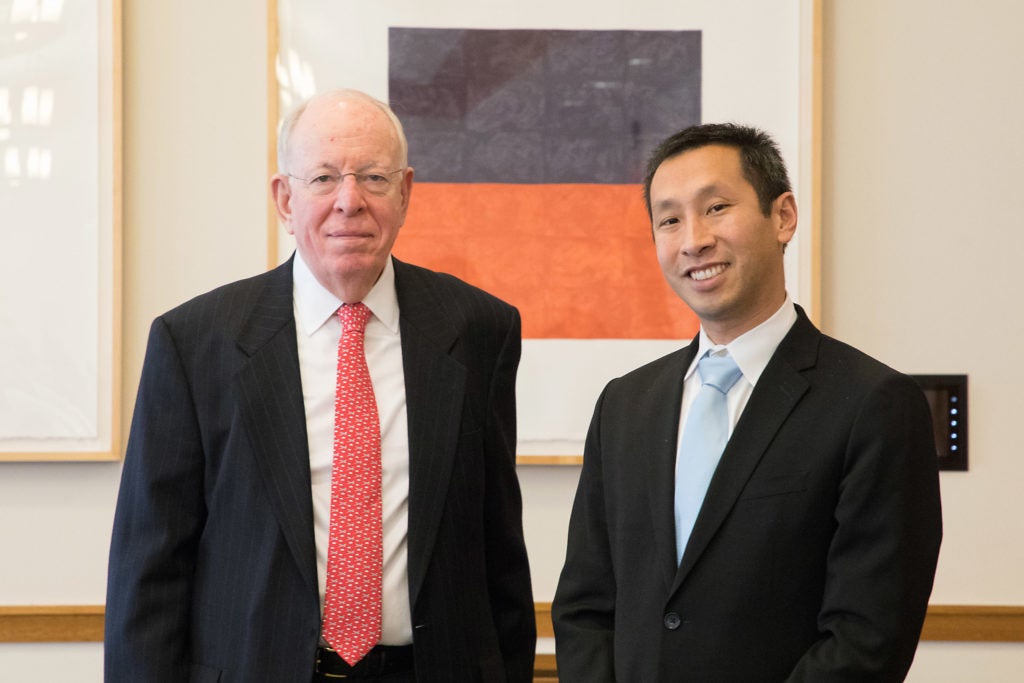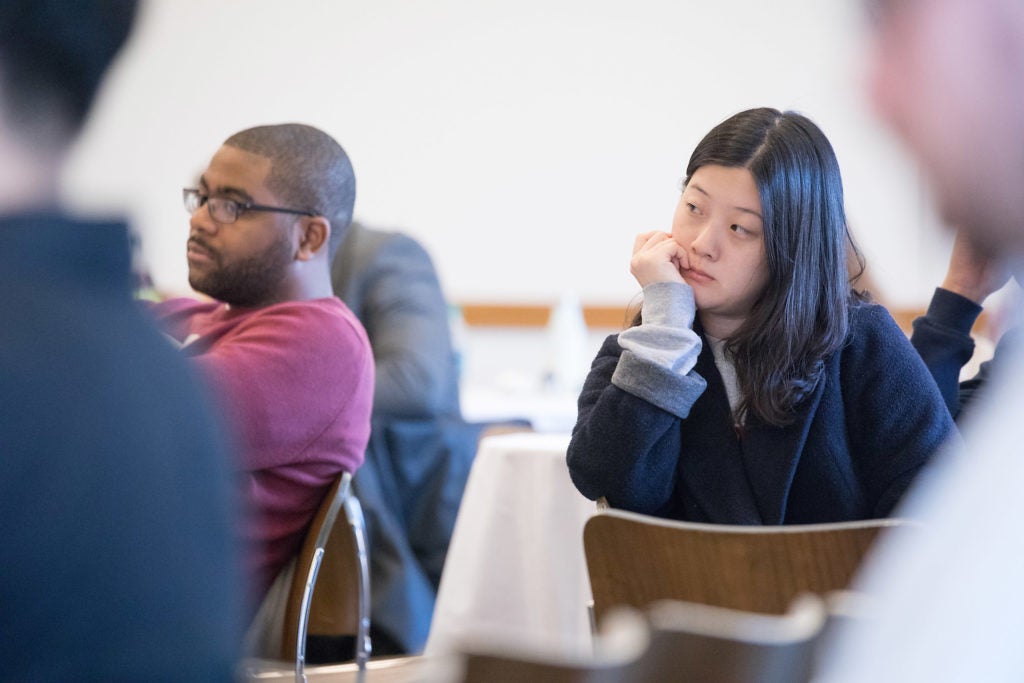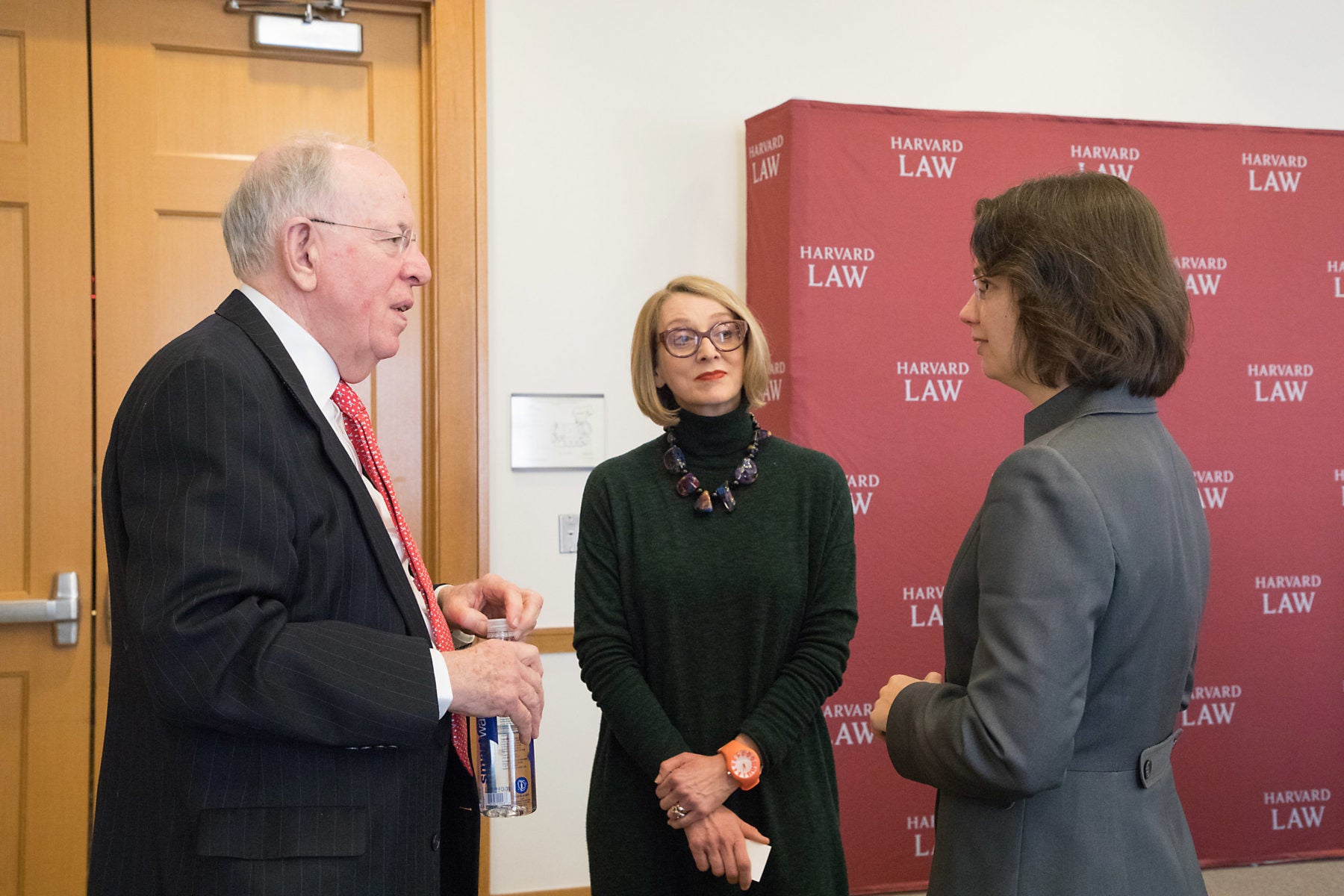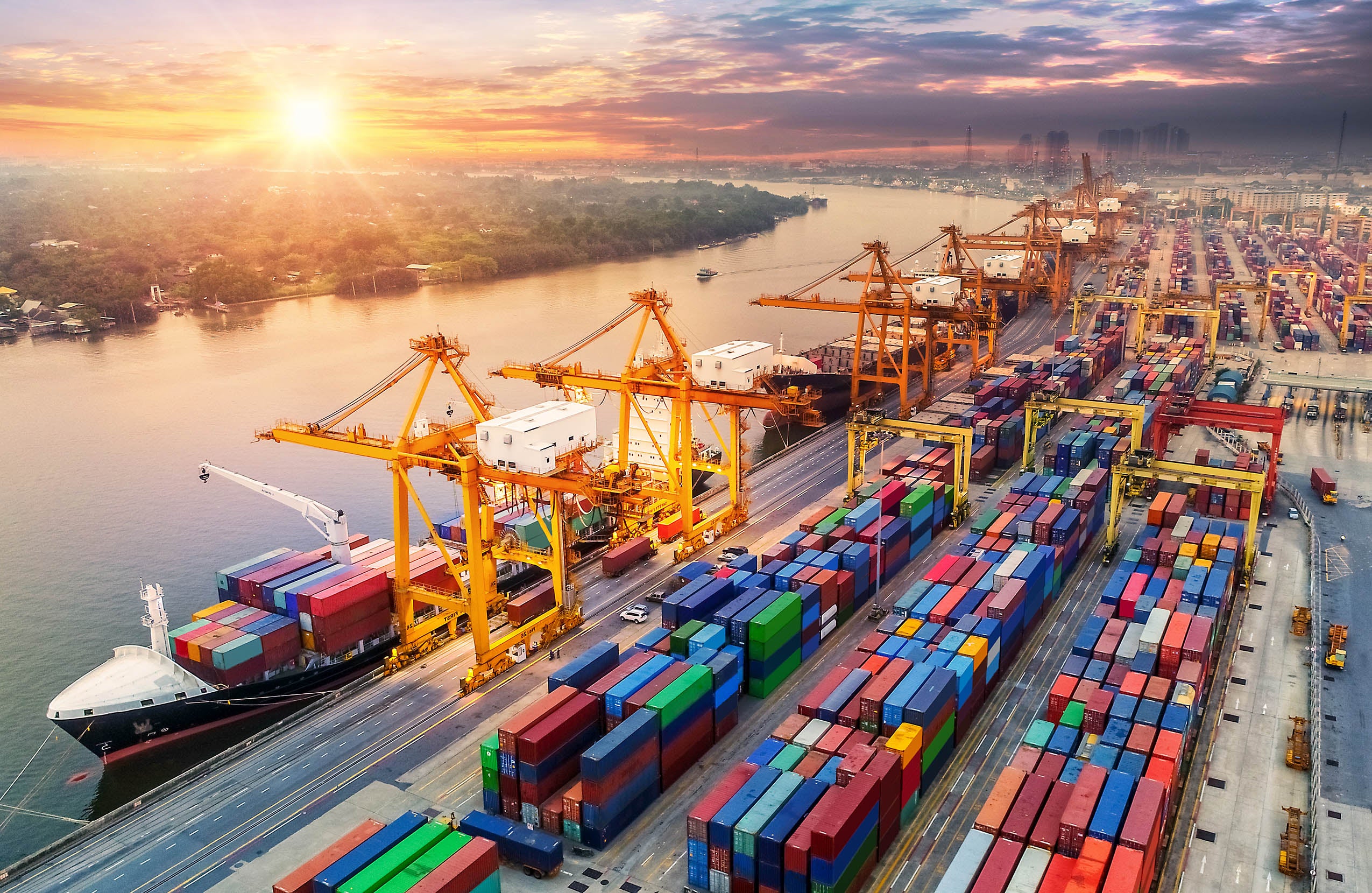These are trying times for the World Trade Organization, deputy director-general Alan Wolff admitted when he spoke at Harvard Law School on March 12. Yet in his speech he offered reason for optimism, predicting that the WTO will survive the U.S.-China trade disputes and other current challenges.
“It cannot be denied that there are serious strains currently … or that a surfeit of crises is near at hand,” Wolff told the lunchtime crowd. “[But] I am fully convinced that the multilateral trading system will endure, that it will be improved and will in fact thrive.” His lecture on testing the resilience of that trading system was introduced by Professor Mark Wu who noted that Wolff has “had an unenviable job in the past couple of months.”

Wolff began his talk by tracing the history of the “liberal international order”—his term for the post-WWI geopolitical structure in which a liberal system of multilateral trade fosters peace between like-minded countries. This system, he noted, was first proposed in Woodrow Wilson’s Fourteen Points speech—and the concept was “embraced by all major nations and at that time, [yet] implemented by none.”
However, Wolff said, Franklin Roosevelt would later maintain that “you could not separate the idea of commerce from the idea of war and peace.” This became a central tenet of the Atlantic Charter signed by Roosevelt and Winston Churchill in 1941, leading to the creation of the United Nations. Only with the passing of the WWII generation, Wolff said, has the idea begun to fade that peace and trade are strongly linked. “Absent the conviction that the two are inseparable, and in the face of a series of seismic economic events, the survival of the liberal international order, the multilateral trading system is being increasingly questioned.”
The current threats are numerous, he said. These include an incompatibility of major nations’ trading systems; rises in nationalism, populism and economic inequality; an overall lessening of trust, and an absence of consensus among WTO members on the way forward. “The tasks at hand are enormous, but so are the opportunities for positive change,” he said. “The system is being tested as never before in its 80-year history, but there are sound reasons for optimism.”

Wolff then gave eight specific reasons for optimism, but qualified each one with a counterpoint:
- Most of world trade continues to be conducted in accordance with the WTO commitments its members have made. Yet he said that “the canceling of international agreements with ease poses systematic risks.” This was one of a few cases where he referred to President Donald Trump’s actions without specifically naming him.
- World trade is growing, not shrinking. However, the rate of growth has begun to shrink since reaching 4.7 percent in 2017.
- Not one of the 164 member countries has opted to leave the WTO. But President Trump has tweeted a threat to do so, and Wolff said it would be a mistake to ignore such a statement.
- The solid daily work of the committees of the WTO continues to accelerate. The counterpoint is that “the WTO is far from perfect,” and still depends on voluntary compliance.
- The dominant theme among the WTO members is to make it stronger, not weaker. In this point Wolff mentioned a number of specific reforms that are now underway, including projected benefits to developing countries, and a pledge by all nations to curtail fishery subsidies that deplete the world’s oceans. The only counterpoint was that none of the outcomes are certain as yet.
- No member has said that it wishes the WTO’s dispute settlement system to end, and intensive work has begun to find workable solutions to issues that have been raised. But disagreement persists between the US, the EU and other members on how the Appellate Body should conduct itself.
- Conflict-affected countries see in the multilateral trading system the same path to peace and stability that its founders saw in 1947. This, Wolff said, is the most compelling reason for optimism. It is only uncertain whether the core interests of these countries will extend to the broader WTO membership.
- Countries have interests that are best served by membership in the WTO. At the moment, Wolff said, members “do not always recognize the need to conform their conduct to the long-term maintenance of the global trading system.”
Even the current era of reforms and disagreements signals a new life for the WTO, Wolff said. “Nothing will be easy, but a process of attempted renewal and potential reform has begun. …. With reforms and with new energy from acceding countries, the future of the WTO has the prospect to be nothing short of brilliant.”

